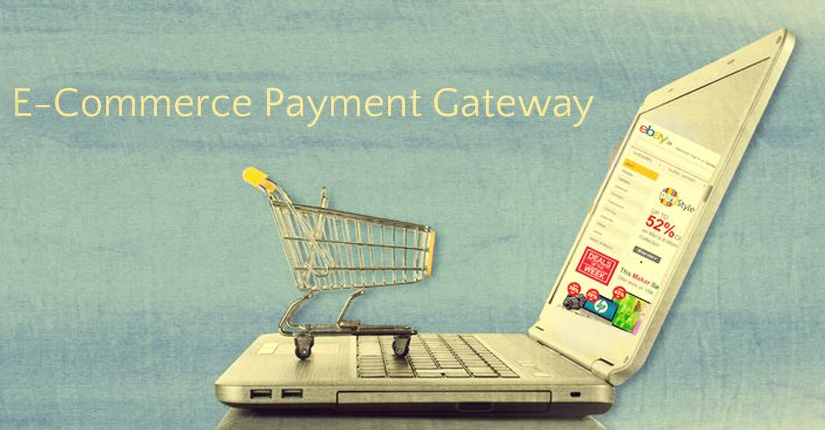
Site Search
5 Payment Gateways For Your Business

Table of contents

Let's talk
Reach out, we'd love to hear from you!
Do you know, if you do not have a smooth payment gateway, then it can drive your buyers away? The complex payment gateway asking too many details about customer puts off anybody who comes to your website, shopping for his or her favourite product. If you are planning to start your online store, then keep in mind that a payment gateway is one of the most important areas where you should concentrate. Make the payment process hassle free, so that customers don’t have a tiring experience while making the payment.
Any e-commerce web development company wants a good reputation among its customers. A smooth payment gateway is vital for any business that wants to stay longer in the market. UIPL recommends six types of payment gateways that will help you to decide the best payment gateway for your e-commerce website.
Hosted Payment Gateways
Here, the customer is redirected to a third party website of the payment service provider once he or she clicks the ‘Pay Now’ button. He needs to fill in important details such as ‘Name on card,’ ‘Expiry Date,’ ‘CVV.’ Once he fills the details, a One Time Password (OTP) is sent to the customer, once this process is done, the customer will again be redirected to that particular online shopping website.
iFrame or inline Frame is another payment gateway. Here, a link is created by the payment service provider to the merchants. The customers do not have to insert any details. All they have to do is fill up a form and the PSP automatically transfers the data. In case, the customer has any outstanding payments to make, the PSP creates a profile of the specific customer and goes on deducting the recurring amount while sending notifications to the website from where he or she purchased the product.
Benefits to the merchant
1. All details of the cardholder are captured by PSP
2. The logo of the merchant’s business can be attached in the payment page
3. The PSP takes care of the payment set up
Self Hosted Payment Gateways
Here, the customer is not redirected to any third party website. All the details are taken by the e-commerce website itself. After this, the data is sent to the URL of the payment gateway. This is done by either sending the data in a specific format or by sending any secret code. Any outstanding payment from the customer’s side is debited by the payment gateway. As soon as this is done, a notification is sent to the e-commerce website.
Benefits to the merchant
1. the way a customer navigates through the website till the checkout process in order to get an idea about the things that a customer looks for when he or she visits a website for the first time.
2. Get insight about the customer’s shopping preference.
Non-Hosted Payment Gateways
If you want your customers to enter their details in your website, then Non-Hosted Payment Gateways are something, which you should opt for. Also known as API, here any information of the customer related to the transaction can be accessed on the web page itself. This is done with the help of API. Based on the information provided by the customer regarding his payment details, payment calls are made after which notifications are sent to the website.
Benefits to the merchants:
1. View the User Interface of the payment page.
2. Enhanced customer experience.
3. Connect internet payment solution with mobile phones, tablets or any kind of technological device that can access an e-commerce website.
Direct Payment Gateway
There are many payment processors that do not give instant payment notification. The amount is debited from the user’s debit or credit card without informing the system. Only a notification of the credit card’s approval is generated. In this situation, the system constantly updates the payment processor whether the payment is received or not.
Benefits to the merchants:
The user is not redirected to any payment gateway.
Platform Based Payment Gateway Solutions
This is an excellent platform for selling your goods directly from the server itself. After the users have selected the items they want to purchase, customers need to subscribe themselves first and then they are redirected to the checkout button. The purchase can be completed in any language or currency.
Benefits to the merchants:
1. Improve the conversion of buyers.
2. Shows the price as well as currency of the shopper. You will get an idea about the geographic location of your buyers.
3. Receive foreign payments according to the latest exchange rates.
The above mentioned payment gateways will help you to decide which is the one that suits your business need, but before deciding the payment gateways there are a number of factors that you have to keep in mind.
1. Know the transaction fees charged by the payment gateway.
2. Do not opt for any kind of payment gateways that asks you to register yourself.
3. Always choose a payment gateway that accepts multiple currencies. This is applicable only when your business is spread in more than one country.
4. Read the terms and conditions of the payment gateway carefully. Check what type of products you can sell.
5. Check and make sure the payment gateway you have selected does not ask people to fill a plenty of personal details. This will certainly drive away visitors from the website.
6. Your payment gateway must accept Credit Card, Debit Card and Paypal payments.
A payment gateway plays a vital role in any business. The customers must rely on you when it comes to payment. At the same time, a safe and secure payment process will always make your customers coming back to your website. The concept of e-commerce is developing day by day and in the near future it is expected to increase. With the growth of internet penetration and tech-savvy population all over the world, e-commerce will certainly flourish. Along with this, payment gateway will also gain much importance while creating an e-commerce website because this is one of the key factors for developing customer reputation.


